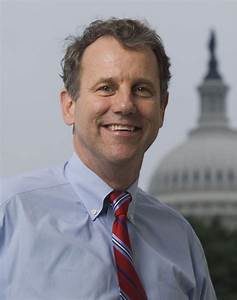OTHER NEWS

Sachet Naik
Freddie’s Kiefer: There's No Housing Bubble
- Monday, 28 January 2019

Realtors, homeowners and others who ask, "Are we in another house price bubble?" The answer is "No," said Len Kiefer, deputy chief economist for Freddie Mac, who was speaking at the 2019 Florida Real Estate Trends summit during the Florida Realtors Mid-Winter Business Meetings.
"Home prices are up, but that by itself is no indication of a bubble; you need an element of speculation or credit financing involved as well," said Kiefer. "We looked at credit, capacity and collateral. In the mortgage space, credit has not expanded in anything like we saw a decade ago. As a result, the default potential rate is pretty low. And we clearly don't see the types of financing products that pushed the dynamics then."
While incomes are up, they're not matching the pace of rising home prices. Still, mortgage debt payments as a percentage of disposable income has declined significantly, largely due to lower mortgage interest rates.
"In the downturn, people were taking on a lot of debt, which in turn pushed up prices," said Kiefer. "Now, looking at total mortgage debt compared to equity, we're not seeing that kind of speculation or problem. So, when I'm asked about a bubble, I do say, No. But the way I pause before I say no has been extending a bit as home prices continue to rise more than incomes. However, in our view, house prices will moderate as mortgage rates rise."
So, what's ahead for the U.S. economy and housing market in 2019?
"Employment and a little bit of income growth will be key to supporting homebuyer demand," said Kiefer. "Inflation is going to drive the Federal Reserve policy. It's been pretty tame the past few months. We at Freddie Mac expect one to two rate hikes in 2019 as opposed to the four hikes in 2018, though that will be data-dependent."
The economy should experience modest growth, he said, while mortgage interest rates should gradually rise throughout the rest of the year and be somewhere around 5 percent by the end of the year, representing about a 0.5 percentage point rise from the current rate.
"When interest rates rise, the housing market responds pretty negatively and home sales go down," said Kiefer. "But looking ahead to spring, we should see stabilization of home sales and modest growth in the U.S. economy. Our forecast nationally is for housing prices to moderate substantially over the next few years. However, one of the biggest challenges for the overall economy is a lack of new housing supply."
Read more...
Otting Asked to Explain Administration's GSE Plans
- Friday, 25 January 2019

What has Joseph Otting, acting director of the FHFA, included in the plan for removing the government sponsored enterprises from conservatorship and how will it affect underserved communities?
Concerned that he will take that step without their input, much less take the time to explain what’s planned, Rep. Maxine Waters, D-CA. and chairwoman of the House Financial Services Committee, and Sen. Sherrod Brown, D-OH, ranking member of the Senate Committee on Banking, Housing, and Urban Affairs, sent Otting a letter:
[caption id="attachment_9329" align="alignright" width="237"] Sherrod Brown[/caption]
Sherrod Brown[/caption]
“In an interview on Jan. 10, 2019, you stated that there was ‘a clear mission that’s outlined by the Treasury and the White House, what they want to accomplish’ at FHFA and indicated that you would pursue that mission in your new role. It has also been reported that you told FHFA employees that you would soon announce a plan to move Fannie Mae and Freddie Mac out of conservatorship. To date, we have not seen a comprehensive statement from the White House and Treasury Department under the Trump Administration providing their views on regulation of the housing finance system.”
Waters and Brown are worried about how the Trump Administration plan would affect communities that have been underserved in the past. That’s because recent legislation requires the GSEs to serve these communities and for the FHFA to monitor their compliance with them.
They articulated their concerns on this issue as follows:
“The enterprises’ activities are especially impactful in traditionally underserved parts of the market, including low- and moderate-income households, rural areas, affordable rental housing, and manufactured housing. In the two most recently enacted bills to strengthen oversight of the Enterprises, Congress expressed bipartisan support for the enterprises’ continued and expanded role in serving underserved markets. To ensure that the enterprises fulfilled this duty, Congress directed their regulator, FHFA, to monitor and enforce the Enterprises’ activity across each of these market segments.”
Otting also serves as Comptroller of the Currency.
Read more...
FHFA: Interest Rate Indices Unchanged in December
- Friday, 25 January 2019

 The interest rates on conventional purchase-money mortgages were almost unchanged in December, compared with November December, according to several indices of new mortgage contracts from the Federal Housing Finance Agency.
The interest rates on conventional purchase-money mortgages were almost unchanged in December, compared with November December, according to several indices of new mortgage contracts from the Federal Housing Finance Agency.
The National Average Contract Mortgage Rate for the Purchase of Previously Occupied Homes by Combined Lenders Index was 4.83 percent for loans closed in late December, down 3 basis points from 4.86 percent in November.
The average interest rate on all mortgage loans was 4.82 percent, unchanged from November.
The average interest rate on conventional, 30-year, fixed-rate mortgages of $453,100 or less was 4.98 percent, down 1 basis point from 4.99 in November.
The effective interest rate on all mortgage loans was 4.92 percent in December, up 1 basis point from 4.91 in November. The effective interest rate accounts for the addition of initial fees and charges over the life of the mortgage.
The average loan amount for all loans was $318,600 in December unchanged from November.
Read more...
